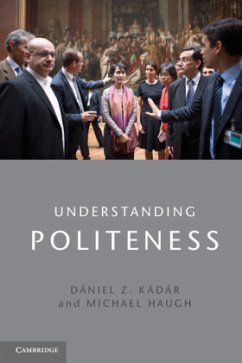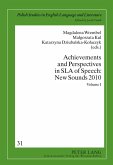Politeness is key to all of our relationships and plays a fundamental part in the way we communicate with each other and the way we define ourselves. It is not limited only to conventional aspects of linguistic etiquette, but encompasses all types of interpersonal behaviour through which we explore and maintain our relationships. This groundbreaking exploration navigates the reader through this fascinating area and introduces them to a variety of new insights. The book is divided into three parts and is based on an innovative framework which relies on the concepts of social practice, time and space. In this multidisciplinary approach, the authors capture a range of user and observer understandings and provide a variety of examples from different languages and cultures. With its reader-friendly style, carefully constructed exercises and useful glossary, Understanding Politeness will be welcomed by both researchers and postgraduate students working on politeness, pragmatics and sociolinguistics more broadly.
Hinweis: Dieser Artikel kann nur an eine deutsche Lieferadresse ausgeliefert werden.
Hinweis: Dieser Artikel kann nur an eine deutsche Lieferadresse ausgeliefert werden.
'Understanding Politeness provides an innovative, integrative understanding of politeness as an evaluative social practice. It is destined to become the standard paradigm for teaching students and for studying these complex phenomena.' Robert B. Arundale, Professor Emeritus of Communication, University of Alaska Fairbanks








